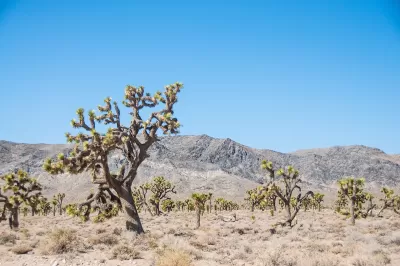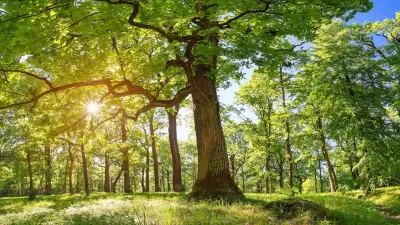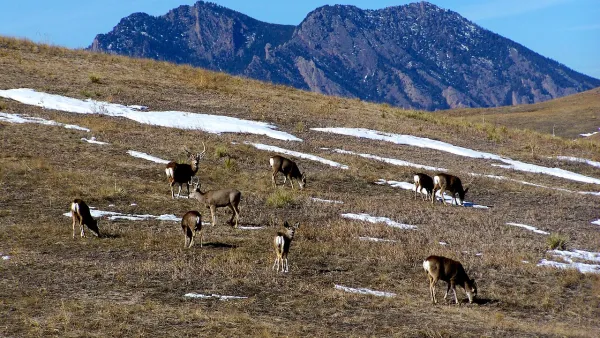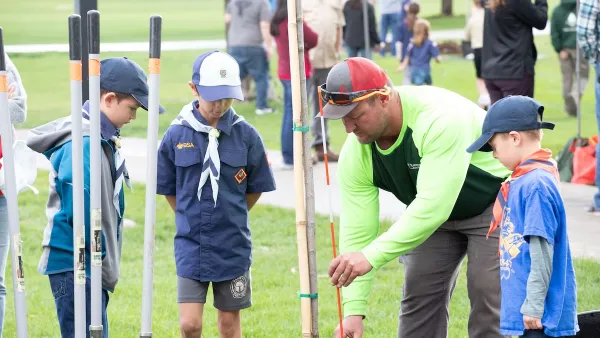The Lancaster Museum exhibit “Desert Forest: Life with Joshua Trees” aims to raise awareness of the ecological importance of Joshua trees and the threats they face from climate change in the Mojave Desert.

California State University, Northridge (CSUN) professor Jeremy Yoder hopes a new art exhibit, “Desert Forest: Life with Joshua Trees,” at the Lancaster Museum of Art and History will raise awareness about the threats facing Joshua trees. The exhibit, part of Getty’s PST Art initiative, features diverse artwork showcasing the iconic trees, with Yoder providing scientific expertise and contributing essays that explain their ecological importance and the challenges they face due to climate change. The exhibition highlights both the beauty and the vulnerability of Joshua trees in the Mojave Desert.
Yoder emphasizes the critical role Joshua trees play in the Mojave Desert ecosystem, serving as food and shelter for various species of birds, mammals, and reptiles. In one of his essays, he explains the mutual relationship between Joshua trees and Yucca moths and outlines the trees' evolutionary history. However, climate change is making the desert hotter and drier, causing young Joshua trees to struggle and die before they can fully mature. This issue, compounded by increasing wildfires, poses a serious threat to the species' survival.
The exhibition provides a platform for collaboration between artists and scientists, with Yoder contributing data that inspired some of the artwork. Yoder hopes the exhibit will resonate with local residents, drawing attention to the need for protecting Joshua trees, which hold both ecological and cultural significance. With ongoing research, including gene sequencing, Yoder is working to better understand how these iconic desert plants adapt to changing climates in an effort to ensure their long-term survival.
FULL STORY: CSUN Professor Hopes Lancaster Joshua Tree Exhibit Draws Attention to the Threats Faced by the Species

Maui's Vacation Rental Debate Turns Ugly
Verbal attacks, misinformation campaigns and fistfights plague a high-stakes debate to convert thousands of vacation rentals into long-term housing.

Planetizen Federal Action Tracker
A weekly monitor of how Trump’s orders and actions are impacting planners and planning in America.

In Urban Planning, AI Prompting Could be the New Design Thinking
Creativity has long been key to great urban design. What if we see AI as our new creative partner?

Portland Raises Parking Fees to Pay for Street Maintenance
The city is struggling to bridge a massive budget gap at the Bureau of Transportation, which largely depleted its reserves during the Civd-19 pandemic.

Spokane Mayor Introduces Housing Reforms Package
Mayor Lisa Brown’s proposals include deferring or waiving some development fees to encourage more affordable housing development.

Houston Mayor Kills Another Bike Lane
The mayor rejected a proposed bike lane in the Montrose district in keeping with his pledge to maintain car lanes.
Urban Design for Planners 1: Software Tools
This six-course series explores essential urban design concepts using open source software and equips planners with the tools they need to participate fully in the urban design process.
Planning for Universal Design
Learn the tools for implementing Universal Design in planning regulations.
Gallatin County Department of Planning & Community Development
Heyer Gruel & Associates PA
JM Goldson LLC
City of Camden Redevelopment Agency
City of Astoria
Transportation Research & Education Center (TREC) at Portland State University
Jefferson Parish Government
Camden Redevelopment Agency
City of Claremont





























